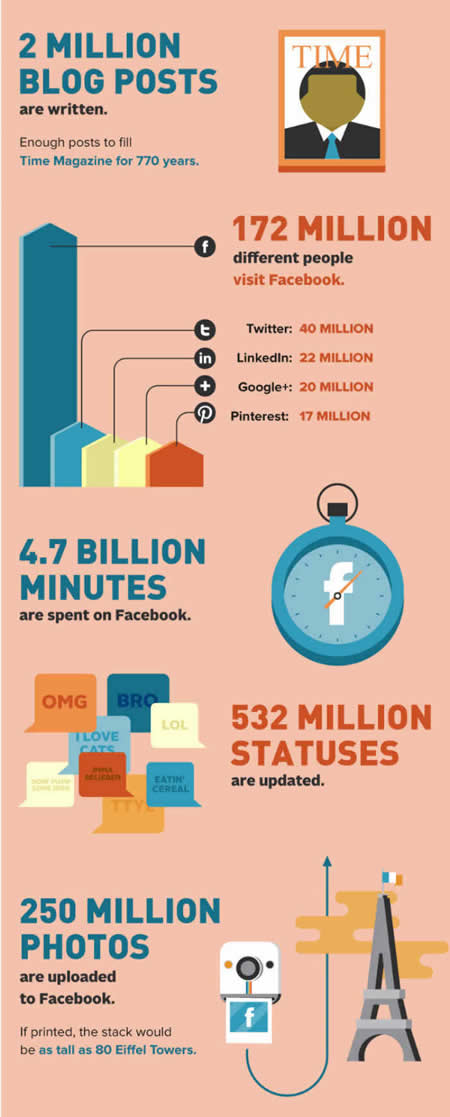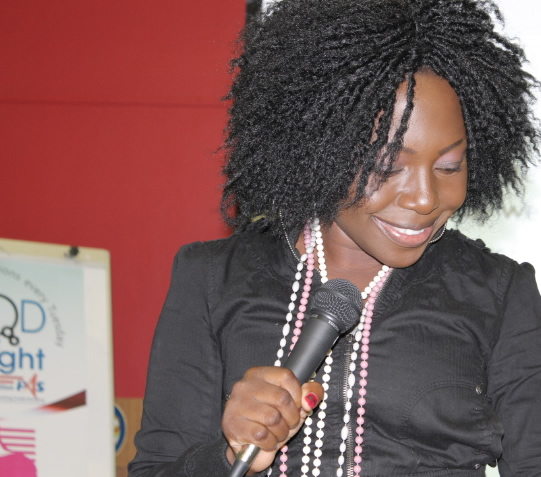Author Archive
A better world for rural girls
Thursday, March 8th, 2012 by Upenyu Makoni-MuchemwaI attended a presentation by a remarkable young Zimbabwean woman at the US Embassy Harare Public Affairs Section on Tuesday. Nyaradzo Mashayambombe is a gospel artist and founder of Tag a Life International. Having grown up in rural Shurugwi, Nyaradzo witnessed the challenges faced by girls and young women. Their circumstances inspired her to found Tag A Life International in 2010.
Of forming TaLi and her work she says,
“TaLi was borne out the vision of a need to create a safe world where girls can dream as much as boys, and gain access to resources so they can become who they want to be. I began to believe that the empowerment of the girl child couldn’t be complete without the involvement of the communities in which they are socialised. “
In her presentation Nyaradzo stated strongly that men could also play an important role in the lives of girls and young women,
“Our strategies are based on a strong belief that harm should never happen to girls and we cannot remain on the sidelines without taking a proactive stance. This stance involves educating our communities, men and boys, that they have equal responsibility towards their female counterparts. Men ought to play a role in improving a girl’s life. If you are a relative, compliment them; be interested in their talents and education. Make her feel important such that she won’t think that getting it from a man is worth losing her own life.”
Blogger Fungai Machirori launches Women’s Web Portal
Tuesday, March 6th, 2012 by Upenyu Makoni-Muchemwa“From my discussions with different Zimbabwean women, I have come to realise that many are struggling to find their space within society and to give voice to their many concerns,” observed Fungai Machirori the Founder and Managing Editor of the women’s web portal. “In my view, these challenges have come about because Zimbabwean women have struggled to strike a balance between articulating and celebrating their individualism, while still retaining their collective cultural and social identities.”
herzimbabwe is … a space where, hopefully, women will be able to see their lives and stories reflected through those of other women. The portal will feature personal perspectives, historical information, arts, lifestyle and health features, as well as a section dedicated to male views and experiences. The herzimbabwe project will also actively engage Zimbabwean women in the Diaspora who have often been marginalised from mainstream Zimbabwean discourse due to their physical distance from issues.
For more information about HerZimbabwe email info[at]herzimbabwe[dot]co[dot]zw
Mutually Assured Destruction
Friday, March 2nd, 2012 by Upenyu Makoni-MuchemwaI don’t trust Gideon Gono with my money. I lived through enough of his quasi-fiscal policies not to trust him at the helm of the Reserve Bank. My other thinks I protest too much, but I will not open a bank account until he is removed from office. Why should I trust a man who authored a book titled “Casino Economy” whilst in the midst of playing Russian roulette with the nation’s livelihoods?
I’m no fan of former Gono Advisor Munyaradzi Kereke either. Given that he was a senior Reserve Bank official during that chaotic decade he is just as culpable. Kereke also allegedly raped his 11 year old niece. The Harare rumour mill purports that the rape was for ritual purposes, not that it has helped him in his present predicament. Rape of a minor is an egregious offence, more so at gunpoint. It is curious that despite evidence and charges being filed on behalf of the minor, the police and Attorney General have apparently refused to investigate and prosecute.
Once thick as thieves, it seems that Gono and Kereke have had a falling out, one which the local media, both private and public refuse to give coverage. Curious, considering the nature and scope of allegations made by both parties against each other. Kereke’s most recent letter, published in the Zimbabwe Mail reveals that Gono was willing to betray his paymasters. This is not anything new – the Wiki Leak cables concerning him revealed as much. Kereke also alleges that Gono has the Anti-Corruption Commission in his pocket, closed banks on a whim, violated the State Secrets Act, looted tens of millions of Public Funds and authored draft legislation that, if passed, would spin Zimbabwe into a civil war.
Kereke appears to be the underdog in this fight. Gono, despite the numerous rumours and allegations that surround him, clearly must have some influence. Whether it is enough to silence Kereke remains to be seen. It makes for interesting reading and speculation, like something out of a novel about an imaginary African state governed by the power hungry who employ witchcraft, sex, lies and betrayal to further their goals. If it were my story to write I would have a third major, but shadowy character, the seemingly benevolent but actually ruthless leader. The Leader would be the puppet master who would watch this drama unfold, and protect both just enough to make the fight between them fair, ensuring that each causes the destruction of the other.
Doing Business in Zimbabwe
Wednesday, February 29th, 2012 by Upenyu Makoni-MuchemwaI interviewed tech-entrepreneur Tatenda Furusa yesterday. Having just returned from the United States and established his own venture, Mealie Media, here in Zimbabwe, I asked him what advice he’d give Zimbabweans who are looking to come back and do the same:
First research and homework. Do your online research, read news articles as much as you can, check Kubatana or whatever journals of whichever sector you’re in. Call people back home, who are there and ask them what’s going on for raw feedback and the truth. Ask them what they would do if they had fifty thousand dollars. Thirdly, take time off and take a trip here. Don’t come here for two weeks, or during December and January because it’s just a bubble. Come through in August and September, in the last quarter of Zimbabwe’s financial year when it’s a little difficult to find money. Come back for a month, visit people, speak to people, and learn about what’s going on. By that point you’ll know if the pros outweigh the cons. It’s a place where you’ll definitely need a pool of funds, anything starting from I think, $5000 upwards. Capital that allows you to do your work freely and quickly is very important. Make sure or try your best to get a joint venture partnership on your trip here, if you can work with someone who’s been here for ten plus years or who’s been here and never left. Or if you’re going to start the business on your own give yourself a year to eighteen months.
Police Stories: the War on Terror
Thursday, February 23rd, 2012 by Upenyu Makoni-MuchemwaAt 9.50 this morning I was stopped at a police roadblock just before the service station near Harare International Airport. The roadblock was manned by three police persons, two women and one man. The male police officer was in visible possession of a ticket book. When I pulled over, the police officer asked me for my driver’s license, which I gave him. He then inspected my car and demanded that I pay a spot fine of $20 for failing to display a third license plate on my car.
I’ve watched several episodes of Dr. Phil when he counsels people with anger problems. He always asks the person involved to identify their anger trigger. I don’t think I have an anger problem, but I’ve discovered that at police roadblocks I have a trigger. It’s when the officers threaten to impound my car, or arrest me because I have stated that I do not have the fine amount demanded and have politely asked for a ticket. I have yet to meet a traffic policeman who does not issue these threats. And I’ve been detained at many roadblocks. My trigger is that the ticket is a last resort for the police, when it should have been the first. What makes me even angrier is when upon learning that I don’t have cash on me, the officer arrogantly informs me that I do in fact have a boyfriend/husband/relative/ or other who can and will bring the money necessary. ‘Make a call’ he says. As though he himself has spoken to that mysterious other person and knows they will come running to pay him the fine money.
I used to yell at police officers that they were not privy to the affairs of my household and should not presume to know so. I used to tell them that they had no right to demand immediate payment, and that in fact it was illegal. I used to demand the officer’s force number for my records, whereupon they would leave me, I assume, to calm down a bit. I used to yell so much, that I, a light-brown skinned woman would get very pink in the face from pure, unadulterated rage.
I’ve stopped yelling. I’m polite but firm. I can keep calm now because I already know the steps in the dance. He will demand money; I’ll ask for a ticket. He will threaten me and then detain me hoping that I’ll be in enough of a hurry to be coerced into paying. It’s a tactic that I’m certain must work in a busy Zimbabwe. I will not be forced into paying a fine when a police officer is unwilling to issue a ticket. Like George W Bush, I’ve declared my own ‘war on terror’.
One of the main reasons why Hitler lost to Stalin on the Eastern Front in World War Two was because of the German Army’s poor supply lines. This was then exploited by the Russians who used a scorched earth policy most effectively against the Germans. My war is primarily psychological, but from this example it’s obvious that supplies are integral to success. Therefore, as Sun Tzu advises, I shall secure my supplies in case of extended siege. I’m creating a roadblock kit to keep in my car. It will include water, because sitting in Zimbabwe in summer in a parked car is like choosing to live in an oven; chocolate for that instant sugar hit that will make everything a little better (maintaining morale is crucial to any war); nuts for long lasting energy to survive the roadblock; a book to pass the time; and enough data and battery on my phone to document these acts of terrorism.












